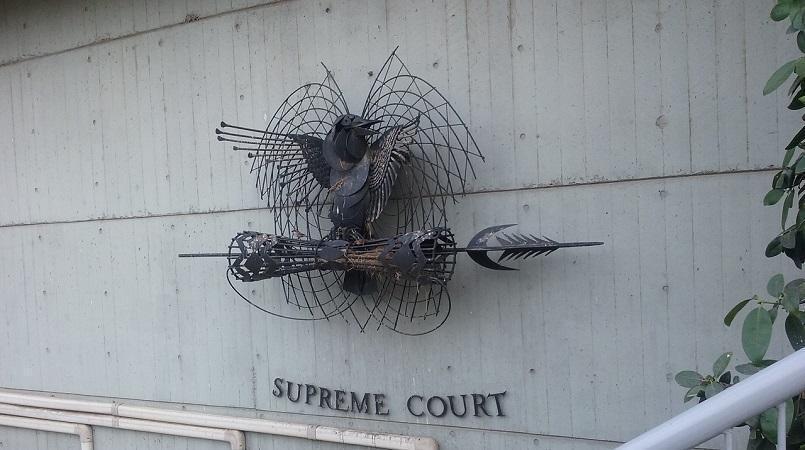
The suspension of a leader whose conduct has been referred to a leadership tribunal, automatically takes effect when the Public Prosecutor presents the allegations of misconduct in office at a public hearing.
A five-man Supreme Court bench by majority clarified this through a special reference that was filed by the Ombudsman Commission.
The reference sought interpretation over the issue of leaders’ suspension from office once a leader’s conduct becomes subject to a Leadership Tribunal proceeding.
The commission sought clarification from the Supreme Court based from three conflicting Supreme Court decisions on the issue.
It asked the court to clarify whether automatic suspension can take effect once the Chief Justice appoints a Leadership Tribunal, or on the day the allegations are presented by the Public Prosecutor before members of a tribunal.
It also sought clarification on amendments done in 2006 to the Organic Law on Duties and Responsibilities of Leaders under section 27(4), and whether strict rules of evidence must be complied with in Leadership Tribunal inquiries.
Three of the five judges who sat on the bench were of the view that a leader will be automatically suspended from office, on the day the allegations or reference are presented by the Public Prosecutor before members of a tribunal at a public hearing.
The reference contains the allegations of misconduct in office, accompanied with the statement of reasons which the tribunal will inquire into when a leader is referred under section 28(1) of the Organic Law on Duties and Responsibilities of Leadership.
They were also of the view that amendments done in 2006 to the Organic Law on Duties and Responsibilities of Leaders under section 27(4) were invalid, ineffective and unconstitutional, thus strict rules of evidence cannot be applied in Leadership Tribunal inquiries.
Chief Justice Sir Salamo Injia, Justice Nicholas Kirriwom, Justice Ambeng Kandakasi, Justice Ellenas Batari and Justice David Cannings sat on the bench that determined the special reference.
